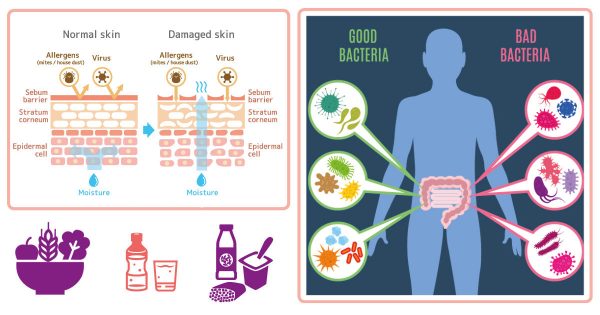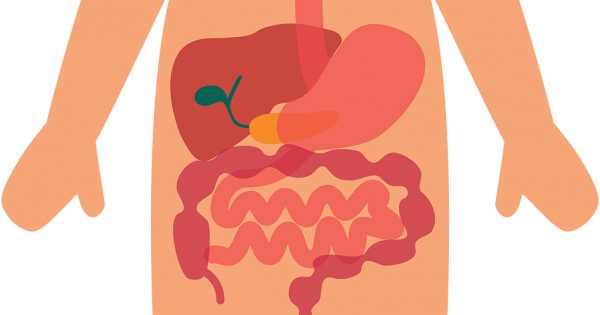Everyone without exception, breathes, swallows, eats, exhales, inhales, and expulses gas, it’s a crucial component of body metabolism. Therefore, to have gas is normal and it’s no different for infants or toddlers either. Too much of it however, may be quite discomforting.
Symptoms of excess gas may include:
- Bloating
- Constant crying
- Burping
- Excessive farting
- Stomach cramps
Did You Know?
The body’s normal response towards excess gas is to remove it via belching, burping, or passing gas (flatus). Passing gas 14-23 times per day is considered normal!
Why Does My Child Have Excess Gas?
It could be a many number of reasons, but essentially it involves:
1. Swallowing too much air:
2. Eating gassy foods:
Foods that produce gas in one child may not cause gas in another, it depends on how well they can digest carbohydrates and the type of bacteria present in their intestines. This type of foods may include:-
- Beans
- Broccoli
- Brussels sprouts
- Cabbage
- Carbonated drinks
- Cauliflower
- Fruits, such as apples, peaches and pears
- Whole-grain foods
- Chewing gum
- Hard candy
- Lettuce
- Milk and milk products
- Onions
3. Gastrointestinal complications:
Small Intestine Bacteria Overgrowth (SIBO)
It is described as the presence of an irregularly high number of bacteria (more than 100,000 bacteria per milliliter) in the upper region of the small intestine. The accumulation of these otherwise harmless gut bacteria can become hazardous. This is because they produce toxins, enzymes, and intestinal gases (i.e. hydrogen, methane, and carbon dioxide) that can disrupt digestion, cause intense physical discomfort and even damage the small intestine.
4. Intolerance towards certain foods:
Some children may not be able to digest (maldigestion/malabsorption) certain foods at all because of lack of digestive enzymes – this is termed ‘food intolerance’. These foods, if eaten, are used by bacteria instead, which in turn produces gas in the process. There are various types of food intolerances but intolerance towards lactose (present in most dairy products) or fructose is usually the most commonly reported.
Diagnosing intolerances can be done using a few methods (i.e. blood test, exclusion diet, etc.), but the most convenient, less invasive and widely available is the hydrogen breath test.
Hydrogen Breath Test
Increase of hydrogen is an indication of intolerance since it is the bacteria inside your child’s intestines which produce it when it processes lactose – a condition which does not occur in the presence of normal digestive enzymes or similarly in fructose intolerance, the hydrogen comes from byproduct of fructose metabolism by the gut bacteria. The test can also be used to diagnose SIBO.
What if the pain of having excess gas persists?
More serious gastrointestinal complications such as Coeliac disease, Irritable Bowel Syndrome (IBS), SIBO, Crohn’s disease, etc. could be the culprit. In any case, watch out for these symptoms:
- Loss of weight
- Loss of energy or the inability to perform daily routine task like before
- Loose stools or diarrhoea that last for more than a week
- Distended abdomen (ballooning outward)
- Persistent stomach pain particularly one that cause night time sleep interruptions
- Blood in the stool
- Loss of appetite
- Vomitting
Symptoms often occur in combination so be aware of these red flags and take your child to see a paediatric gastroenterologist or specialist immediately if they transpire.
How can I help my child?
You can ease your child’s discomfort by applying ointment or rubbing your child’s stomach or back to sooth him/her. If the problem stems from a more serious condition (i.e. constipation, IBS, etc.), they may need a prescription or other forms of pharmacotherapy. As for excess gas caused by intolerance, you should consider dietary intervention. Avoid foods that your child cannot tolerate, provide closely supervised tummy time and lead a healthier lifestyle which should include constant physical activity.

Excess gas in children is quite normal; everyone at some point has felt the displeasure of excess gas. As parents, the best thing you can do is to provide your child with a nutritious, healthy and balanced diet while keeping a close eye on their digestive health. Immediately consult a paediatrician or paediatric gastroenterologist if you suspect your child has a problem.







Comments